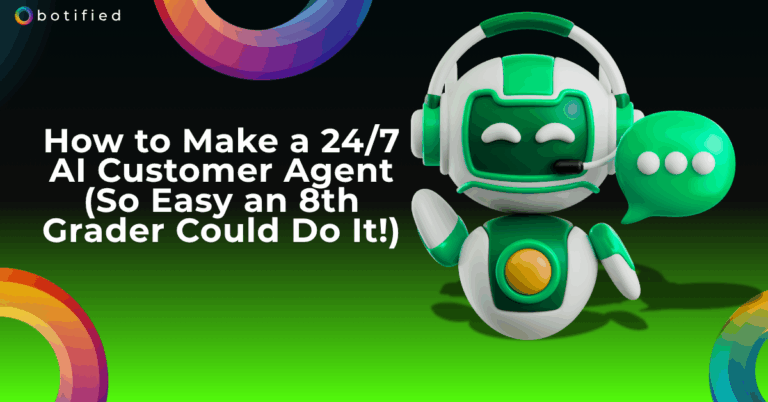Table of Contents
- 20 jobs that AI could replace.
- 1. Data Entry Clerks:
- 2. Telemarketers:
- 3. Receptionists:
- 4. Customer Service Representatives:
- 5. Bookkeeping Clerks:
- 6. Retail Cashiers:
- 7. Truck and Taxi Drivers:
- 8. Proofreaders:
- 9. Manufacturing Workers:
- 10. Delivery Drivers:
- 11. Security Guards:
- 12. Market Research Analysts:
- 13. Pharmacists:
- 14. Legal Assistants and Paralegals:
- 15. Financial Analysts:
- 16. Inventory Stockers and Order Fillers:
- 17. Insurance Underwriters:
- 18. Stock Traders:
- 19. Transcriptionists:
- 20. Travel Agents:
- Staying Ahead of AI: Strategies to Keep Your Job in the Age of Automation
- How To Get A Job In AI Without A Degree?
- Which Skill Will Be Most Required By 2030?
- Conclusion: Always Keep an Eye on AI
AI is reshaping 83% of companies’ priorities. Explore 20 jobs that AI could replace. Get strategies to secure your high-paying career in this tech-driven future.
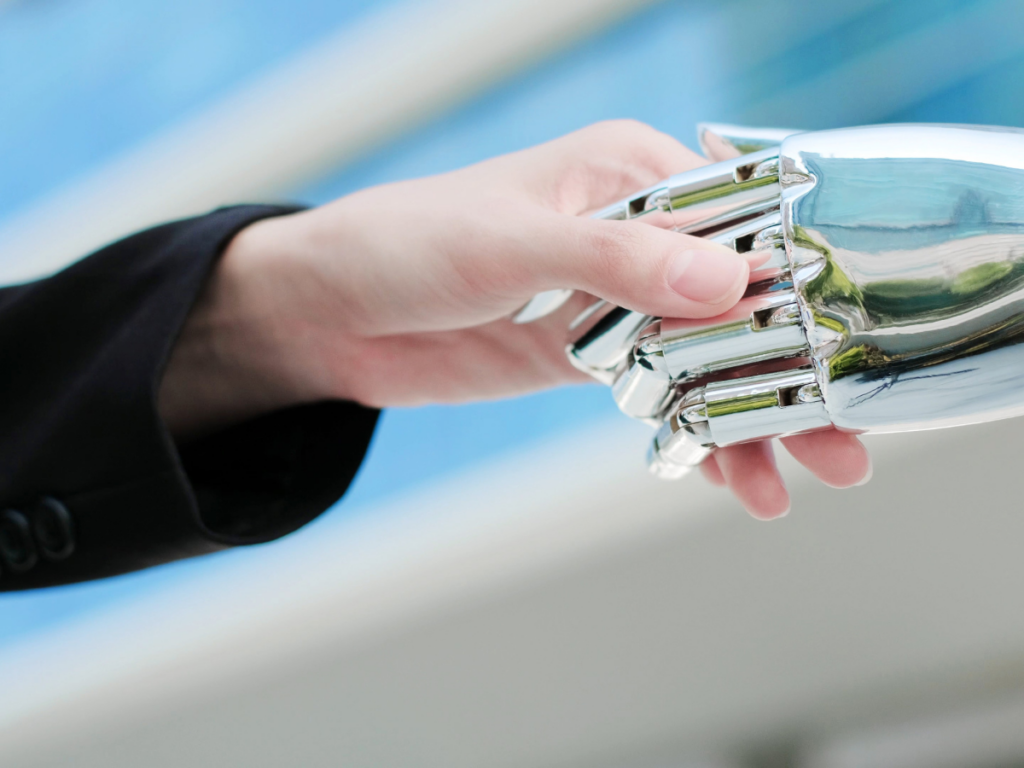
20 jobs that AI could replace.
As we get closer to 2030, a big question comes up: “What jobs will AI replace?” A study by Goldman Sachs indicates that AI might be able to automate around 300 million full-time jobs across the globe, which is roughly 18% of the total workforce worldwide.
This change is already underway. The Department of Government Efficiency (DOGE), which is led by Elon Musk, has announced that around 500,000 federal jobs might be affected in the next five years. AI chatbots and machine-learning algorithms are being tested for handling inquiries, processing claims, and basic regulatory enforcement.
Sure, new AI tools may render some jobs obsolete, but it’s also going to create new opportunities for us. Adaptability and continuous learning are important in this changing world.
The following professions are among those most at risk from intelligent automation tools.
1. Data Entry Clerks:
According to the World Economic Forum, data entry clerks might see a loss of more than 7.5 million jobs by 2027. This puts them among the professions that could be most affected by AI automation. AI tools for business can handle data from all sorts of sources—like handwritten documents, forms, and digital files—much quicker and more accurately than people can.
RPA platforms like UiPath or Blue Prism can reduce processing time by up to 80% and cut costs by 30-40% in various business processes.
2. Telemarketers:
Telemarketers are looking at a tough road ahead. According to the U.S. Bureau of Labor Statistics, there’s an expected 14.2% drop in telemarketing jobs from 2019 to 2029.
AI-powered chatbots and voice assistants can handle cold calling, lead qualification, and appointment scheduling. Tools like Dialogflow or Amazon Connect can increase call volume by 300% while reducing costs by up to 60%.
3. Receptionists:
According to a study by McKinsey, 85% of the tasks performed by receptionists have the potential to be automated. AI receptionists can manage visitor check-ins, schedule appointments, and answer basic inquiries. Virtual reception systems like Reception HQ can handle up to 95% of front desk tasks, improving efficiency by 40%.
4. Customer Service Representatives:
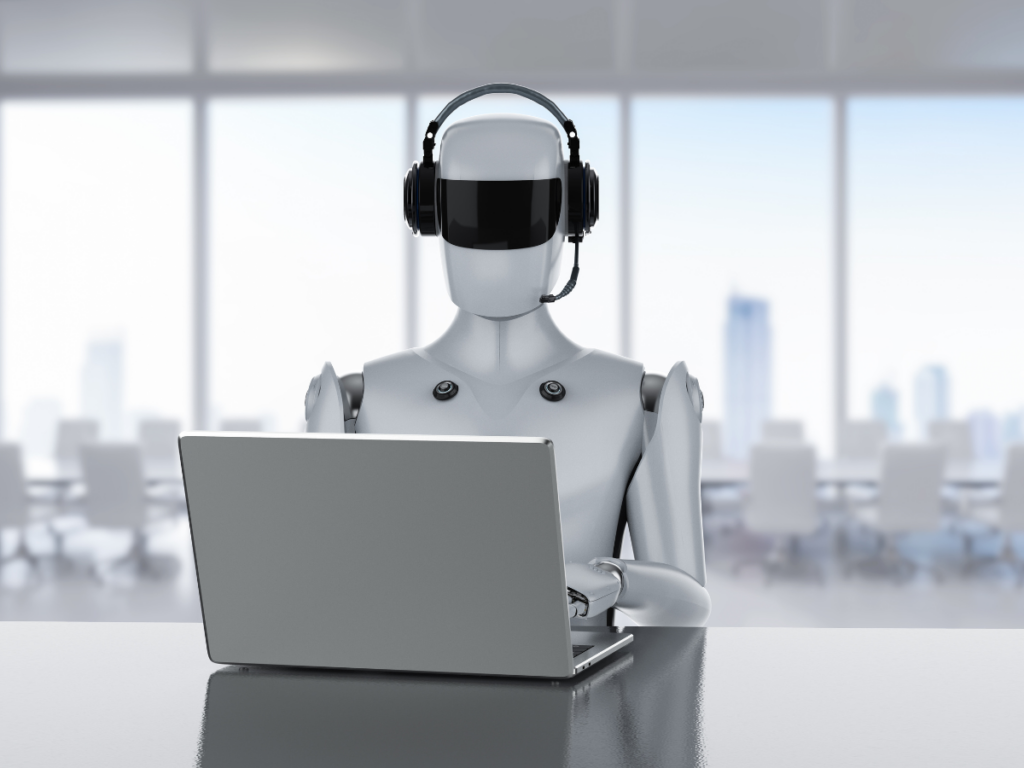
The “Will Robots Take My Job” site shows that there’s a pretty good chance—around 61-80%—that customer service rep jobs could be taken over by AI. AI-powered chatbots and virtual assistants are great for handling common questions, sorting out returns, and sharing info about products. Platforms like Zendesk AI can resolve up to 80% of customer queries without human intervention, reducing response times by 50%.
5. Bookkeeping Clerks:
Bookkeeping clerks face a 98% probability of automation, as reported by the World Economic Forum. AI-powered accounting software can automate data entry, reconciliations, and financial reporting. Tools like Xero or QuickBooks can reduce bookkeeping errors by 90% and cut processing time by 70%.
6. Retail Cashiers:
Retail cashiers may see a 10% decline in employment by 2029, according to BLS data. Automation tools in IT, like self-checkout kiosks, are automating transactions and improving the customer shopping experience. Amazon Go’s “Just Walk Out” technology can eliminate checkout lines entirely, potentially increasing store throughput by 50%.
7. Truck and Taxi Drivers:
Autonomous trucks could replace up to 90% of long-haul trucking jobs in the United States. Self-driving technology from companies like Waymo or Tesla could reduce transportation costs by up to 45% and improve fuel efficiency by 15%.
8. Proofreaders:
AI-powered grammar and style checkers can identify errors and suggest improvements. Tools like Grammarly or ProWritingAid can catch up to 250% more errors than human proofreaders and reduce editing time by 60%.
9. Manufacturing Workers:
According to McKinsey, manufacturing workers are part of the 375 million people worldwide who will have to change jobs or learn new skills by 2030 because of AI business tools. Robots that use AI and automated assembly lines can do the same tasks over and over again with great accuracy. Collaborative robots, such as those made by Universal Robots, can boost production efficiency by as much as 85% and cut down on workplace injuries by 72%.
10. Delivery Drivers:

Autonomous delivery vehicles and drones are becoming more prevalent. Companies like Nuro are testing self-driving delivery vehicles that could reduce last-mile delivery costs by up to 40% and increase delivery speed by 30%.
11. Security Guards:
A report by Axios reveals that security guards are becoming less affordable for round-the-clock security when compared to robots. Companies are discovering that AI-powered options are significantly more budget-friendly than conventional human guards. AI-powered surveillance systems can monitor multiple areas simultaneously and detect anomalies. Platforms like Verkada can reduce false alarms by up to 95% and improve incident response times by 60%.
12. Market Research Analysts:
AI-generated synthetic personas could potentially conduct over 50% of market research, replacing traditional human participants. AI can analyze vast amounts of data and identify trends faster than humans. Tools like Crayon or Qualtrics can process unstructured data 400 times faster than manual methods and improve accuracy by 35%.
13. Pharmacists:
Pharmacists face potential job losses as AI systems take over prescription filling and drug interaction checks. Automated dispensing systems like ScriptPro can fill prescriptions 5 times faster than humans with 99.99% accuracy.
14. Legal Assistants and Paralegals:
AI-powered legal research tools and contract analysis software are becoming prevalent. Platforms like ROSS Intelligence can reduce legal research time by 30% and improve accuracy by 20%.
15. Financial Analysts:
AI algorithms can analyze market trends and make predictions faster than humans. Tools like Kensho can process millions of data points in seconds, potentially increasing trading profits by up to 40%.
16. Inventory Stockers and Order Fillers:
Inventory stockers and order fillers face a 15% decline in jobs by 2029, according to BLS projections. AI-powered robots and automated warehouses are becoming more common. Amazon’s Kiva robots can reduce order processing time by 50% and improve inventory accuracy by 99.99%.
17. Insurance Underwriters:
Insurance underwriters are expected to see around 8,300 jobs disappear in their field over the ten years from 2019 to 2029. AI can look at risk factors and handle claims in a smarter way. A study by Accenture shows that machine learning models can cut underwriting time by as much as 90% and boost risk assessment accuracy by 30%.
18. Stock Traders:
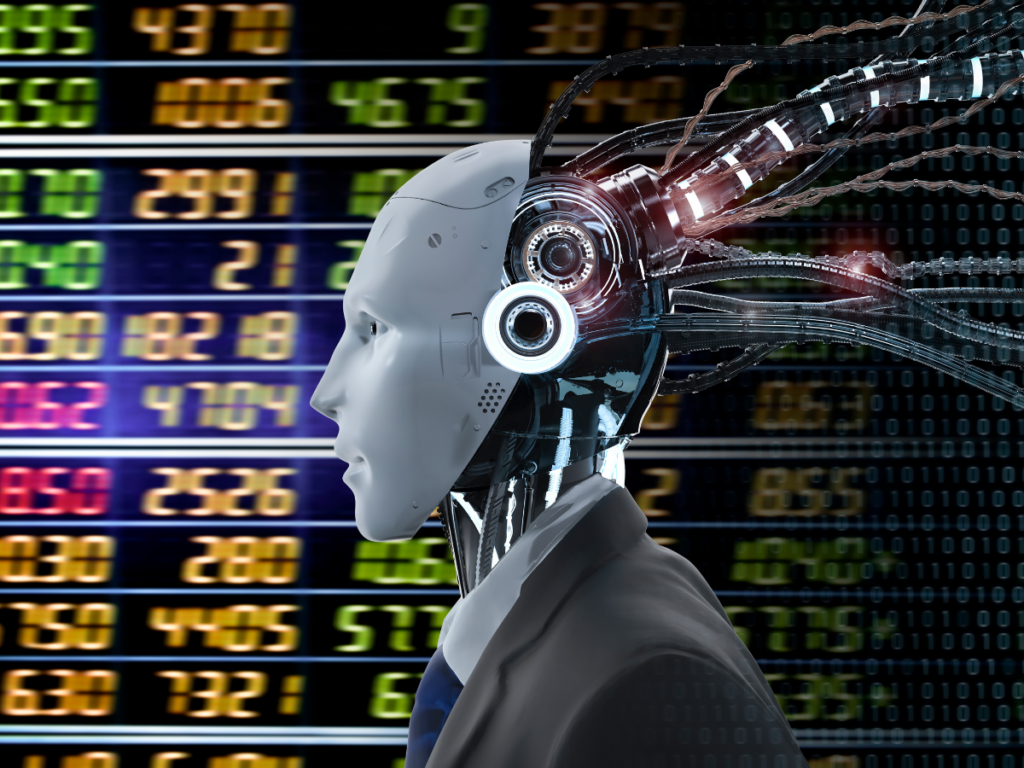
AI-powered trading algorithms and robo-advisors are replacing many human tasks. Advanced platforms can analyze vast amounts of data and execute trades at speeds impossible for humans.
BlackRock’s Aladdin (Asset, Liability, Debt, and Derivative Investment Network) is a prime example of this trend. Aladdin is an end-to-end investment management and operations platform that combines risk analytics with portfolio management, trading, and operations tools in one unified system.
19. Transcriptionists:
Transcriptionists face significant automation risks. Speech recognition AI can transcribe audio with up to 95% accuracy, according to a study in the Journal of AHIMA. Tools like Otter.ai or Rev can reduce transcription time by 75% and cut costs by up to 50%.
20. Travel Agents:
Travel agents may see a 26% decline in jobs by 2029. AI-powered booking platforms and recommendation systems are replacing many human tasks. Expedia’s AI algorithms can process over 3 billion flight search combinations per second, potentially increasing booking efficiency by 70%.
Staying Ahead of AI: Strategies to Keep Your Job in the Age of Automation
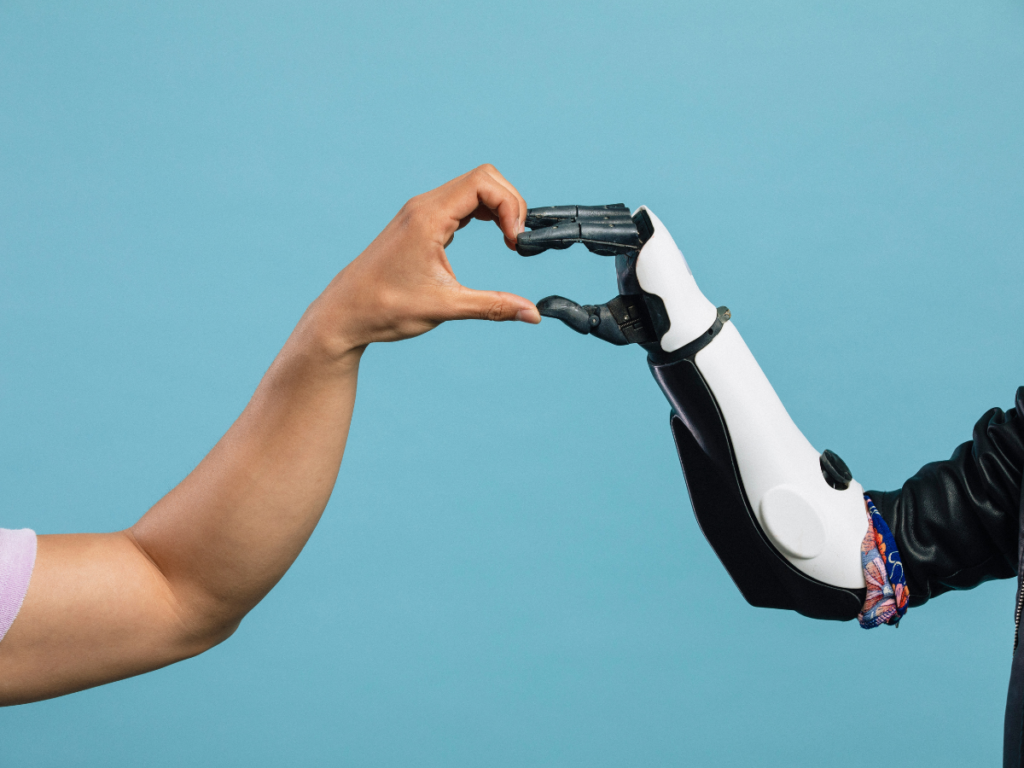
As AI reshapes the job market, adapting your skills is crucial to staying relevant. Instead of competing with AI, focus on developing skills that complement it. This approach not only safeguards your career but also opens up new opportunities.
Boost your career in the age of AI with our practical insights. We’ve researched at-risk jobs to help you:
• Develop in-demand skills
• Explore new career paths.
• Find valuable certifications
If your job is on the list above, see how you can adapt and thrive:
| Job Title | Skills to Develop | Potential Career Shifts | Recommended Courses/Certifications |
| Data Entry Clerks | Data analysis, programming | Data Analyst, Business Intelligence Specialist | • Google Data Analytics Professional Certificate• IBM Data Analyst Professional Certificate |
| Customer Service Representatives | Empathy, conflict resolution, technical knowledge | Customer Success Manager, Technical Support Specialist | • Hubspot Customer Service Certification• Salesforce Certified Service Cloud Consultant |
| Retail Cashiers | Customer experience management, merchandising | Retail Manager, E-commerce Specialist | • Google Digital Marketing & E-commerce Professional Certificate• NRF Retail Management Certification |
| Manufacturing Workers | Robotics maintenance, quality control | Manufacturing Process Engineer, Quality Assurance Manager | • Six Sigma Green Belt Certification• Robotics and Industrial Automation (Coursera) |
| Financial Analysts | Machine learning in finance, risk management | Quantitative Analyst, Risk Management Specialist | • CFA (Chartered Financial Analyst) certification• Machine Learning for Trading (Udacity) |
How To Get A Job In AI Without A Degree?
Now that we’ve explored the jobs at risk of being replaced by AI, you might be wondering how to future-proof your career.
Why wait for AI to shake up your industry? How about jumping into the field that’s leading the charge instead? The good news is, you don’t necessarily need a specialized degree to break into AI.
Here’s how you can transition into an AI career without a degree, potentially securing a more future-proof position:
Learn the Fundamentals
- Take online courses in machine learning, data science, and programming.
- Platforms like Coursera, edX, and Udacity offer comprehensive AI programs.
Develop Programming Skills
- Focus on Python, R, and Java.
- Practice coding regularly and build a portfolio of projects.
Gain Practical Experience
- Contribute to open-source AI projects.
- Participate in AI hackathons and competitions (like Kaggle).
Build a Portfolio
- Create AI projects that showcase your skills.
- Document your learning process and share it on platforms like GitHub.
Network in the AI Community
- Attend AI conferences and meetups.
- Join online forums and discussion groups.
Consider AI Bootcamps
- Intensive, short-term programs that provide hands-on training
- Often offer job placement assistance
Leverage Your Current Expertise
- Look for AI applications in your current industry.
- Combine your domain knowledge with new AI skills.
Start with Entry-Level Positions
- Look for roles like AI Support Specialist or Junior Data Analyst.
- Be open to internships or apprenticeships.
Obtain Relevant Certifications
- AWS Machine Learning Specialty
- Google’s Professional Machine Learning Engineer
- IBM AI Engineering Professional Certificate
Emphasize Soft Skills
- Highlight problem-solving abilities
- Showcase your communication and teamwork skills.
Remember, while a degree can be helpful, many employers in the AI field value skills and experience over formal education. With dedication and the right approach, you can successfully transition into an AI career, even without a traditional degree.
Which Skill Will Be Most Required By 2030?
With 2030 on the horizon, the job market is changing fast thanks to tech advancements and shifts happening around the world. It’s tough to say for sure, but a lot of experts seem to think that there are a few key skills that are really going to be in demand. Check out some of the key skills that are probably going to be in demand by 2030:
Emotional Intelligence (EQ)
- Understanding and managing emotions
- Empathy and interpersonal skills
- Crucial for leadership and teamwork
Digital Literacy
- Proficiency with emerging technologies
- Data analysis and interpretation
- Cybersecurity awareness
Adaptability and Continuous Learning
- Embracing change and uncertainty
- Ability to quickly learn new skills
- Resilience in the face of disruption
Critical Thinking and Complex Problem Solving
- Analyzing information from multiple sources
- Making decisions in ambiguous situations
- Innovative problem-solving approaches
Creativity and Innovation
- Thinking outside the box
- Developing unique solutions
- Combining ideas from different fields
Cross-cultural Competence
- Working effectively in diverse teams
- Understanding global markets
- Communicating across cultures and languages
Sustainability and Environmental Awareness
- Understanding ecological impact
- Developing sustainable business practices
- Knowledge of green technologies
While all these skills will be important, the ability to adapt and continuously learn may be the most crucial. With technology and industries changing so fast, those who can pick up new skills and knowledge quickly will really have the upper hand for success in 2030 and beyond.
To prepare for the future job market:
- Focus on developing a combination of these skills.
- Stay informed about industry trends.
- Embrace lifelong learning opportunities.
- Seek experiences that broaden your perspective.
Keep in mind that the employees who will stand out in 2030 are probably those who can combine different skills and easily adjust to new challenges.
Conclusion: Always Keep an Eye on AI
Many jobs, like customer service reps, data analysts, translators, and financial advisors, are expected to change a lot or might even disappear by 2030. But this tech change also brings fresh chances for those ready to adjust and grow.
Stop wondering ‘what jobs will AI replace.’ Instead, staying informed and adaptable is crucial in the age of AI. Stay on top of things by subscribing to our newsletter for the latest in AI trends and career tips. If you’re a business owner wanting to use AI effectively, check out our automation services. Don’t just observe the future—be a part of it by signing up or reaching out to us today!


